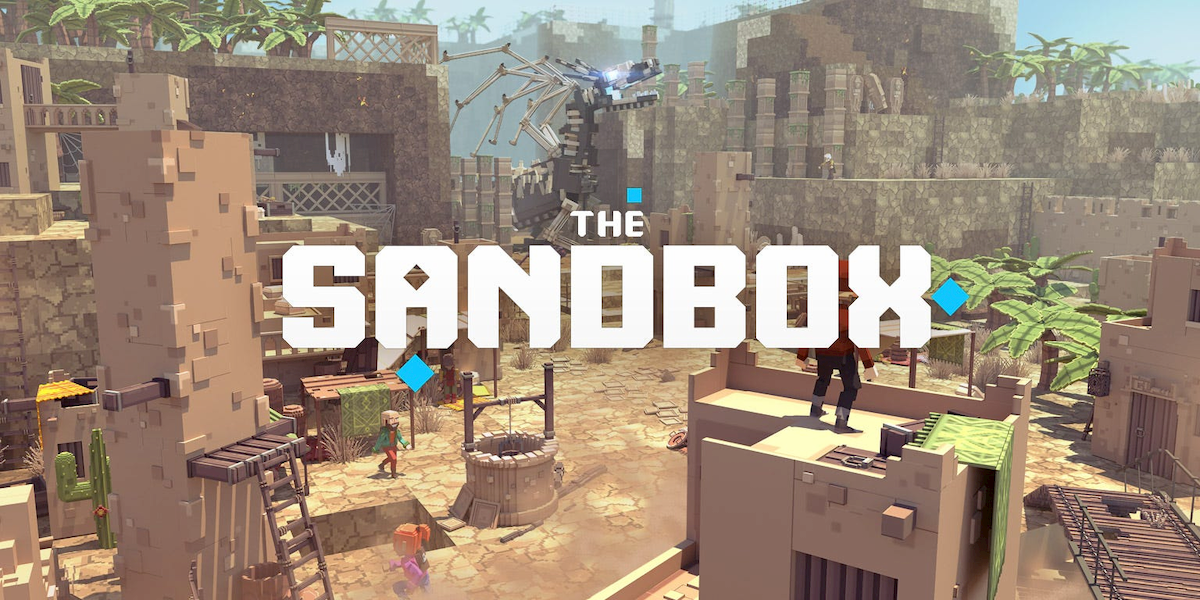Join Our Telegram channel to stay up to date on breaking news coverage
The Sandbox, an Ethereum-based metaverse and gaming ecosystem that allows users to create, trade, and monetize virtual assets through gaming experiences, has cautioned against scammers, claiming the launching of The Sandbox Whitelist Beta Testing.
Scam Alert: There’s No The Sandbox Whitelist Beta Testing
In an October 19 blog post, Sebastien Borget, the co-founder and the chief executive officer of The Sandbox, confirmed that there is no “The Sandbox Whitelist Beta Testing” currently going on. Borget has appealed to the crypto and NFT community to remain vigilant and avoid clicking all links from non-official social media pages.
⚠️ Beware of a new SCAM attempt! ⚠️
There is no "The Sandbox Whitelist Beta Testing" currently going on.⛔️Do not trust this email and do NOT click on the DOWNLOAD buttons. Report the email as PHISHING directly.
🥽 Stay safe and always check with official @TheSandboxGame in… pic.twitter.com/DiBe4DFLPM
— Sebastien 🏞 (@borgetsebastien) October 19, 2023
Established in 2012, The Sandbox is a decentralized, community-driven virtual world where creators can design, share, and sell in-world assets. The Sandbox metaverse is one of several blockchain-based virtual worlds attempting to change the dynamics of the gaming market and reward creators for the value they produce through user-generated content.
The Sandbox allows users to create and animate 3D objects in the metaverse, such as people, animals, and tools, among other items. These objects are called ASSETS and use the ERC-1155 token standard, allowing fungible and non-fungible tokens to be minted with a single smart contract.
The Sandbox has an ERC-20 token, “$SAND,” that powers all of the ecosystem’s transactions and interactions. Crypto gamers can use $SAND tokens to purchase Virtual assets and LANDS, digital pieces of real estate represented by ERC-721 tokens, which are NFTs. Players can use their LANDS, a 96×96 meter digital plot, to house games and ASSETS.
Crypto And NFT Scam On Rise In 2023
The Sandbox joins a rapidly growing list of institutions, investors, and businesses that have become vulnerable to scams in recent weeks. A few weeks ago, Mark Cuban, the American billionaire crypto investor and owner of the famous National Basketball Association club Dallas Mavericks, lost over $870,000 in a crypto hack.
Lmao, did Mark Cuban's wallet just get drained?
Wallet inactive for 160 days and all assets just moved pic.twitter.com/vWnMZFyHB5
— Wazz (@WazzCrypto) September 15, 2023
At the time, the crypto and NFT investor explained that he went on Google to download a new MetaMask crypto wallet app and accidentally downloaded the MetaMask mobile app alongside some phishing links. The heist happened after he logged in to his crypto wallet account to clean the app on his phone.
Earlier last month, hackers breached Ethereum co-founder Vitalik Buterin’s X (Twitter) account to promote a fake non-fungible token giveaway, prompting users to click a malicious link, which resulted in victims collectively losing over $691,000. The Ethereum co-founder confirmed that his X (Twitter) account hack resulted from a SIM-swap attack.
Disregard this post, apparently Vitalik has been hacked. He is working on restoring access. https://t.co/2fjM0GhvIa
— dima.eth (@dimabuterin) September 9, 2023
In related scam reports, a new survey has recently revealed that approximately one-third of Calgarians who own cryptocurrencies have reported falling victim to cryptocurrency-related scams. These scams have led to losses exceeding $22.5 million in the current year.
Related NFT News:
- NFTs Are Down 34% In Sales This Oct – Here’s Why They Might Boom Again Soon
- Hyperspace & Avalanche Join To Launch A Multi-Million NFT Incentive Program
- Crypto And NFT, Investor Mark Cuban, Loses $870K In A Hack
Best Wallet - Diversify Your Crypto Portfolio
- Easy to Use, Feature-Driven Crypto Wallet
- Get Early Access to Upcoming Token ICOs
- Multi-Chain, Multi-Wallet, Non-Custodial
- Now On App Store, Google Play
- Stake To Earn Native Token $BEST
- 250,000+ Monthly Active Users
Join Our Telegram channel to stay up to date on breaking news coverage


